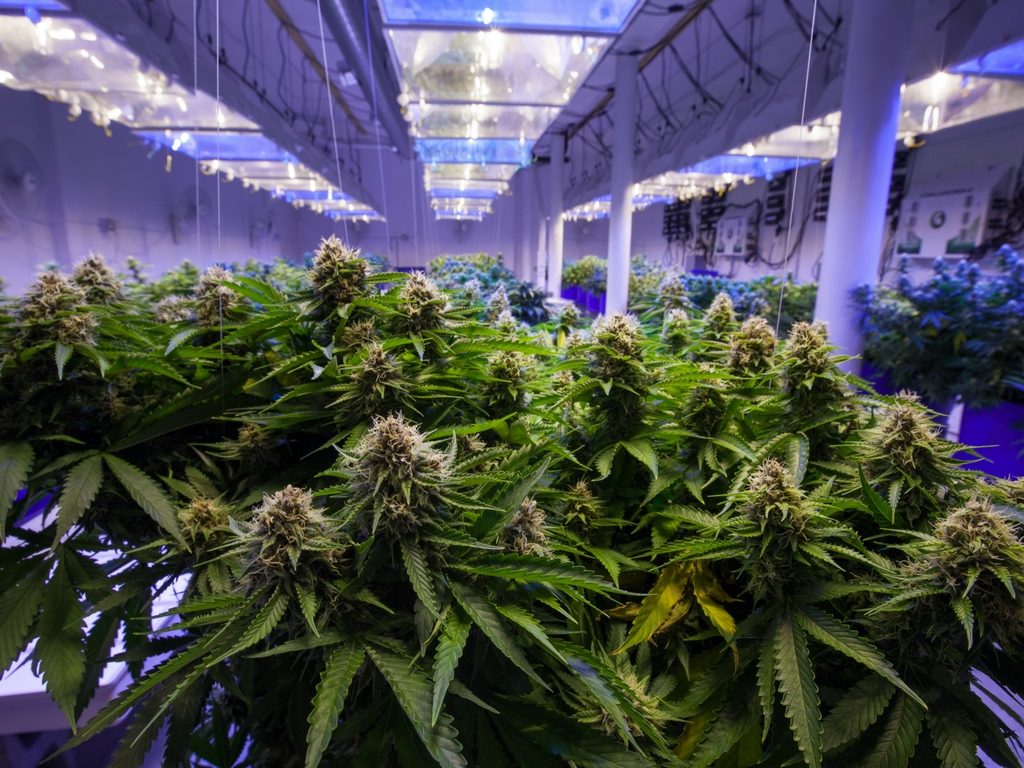ACT Resources Cannabis Tax Preparation – March 2020
We’re rolling right along in 2020 as the final month of the first quarter is underway. In addition to the important tax deadlines coming up, one this month, there is plenty to keep an eye on in the cannabis industry for later this year. Legal cannabis could be making its way to new states, and even the sports world is getting in on the movement for cannabis normalization. What does all this mean for cannabis businesses? Opportunity! Here’s a closer look at some of what's going on around the cannabis industry this month to help you manage your business today while planning for the future.


Tax Filing Deadline Reminder – S Corps and Partnerships
All S Corps and Partnerships must file their taxes by March 16. While individual tax filings are not due until April 15, S Corps and Partnerships must have their taxes prepared and filed this month. S Corps and Partnerships that are not prepared to file all their documentation can request a tax extension by the same deadline.
If you need assistance with last minute tax filing or deadline extensions, contact ACT Resources today.
2. COVID-19 and the Economic Impact of a Pandemic
The rapid spread of the illness known colloquially as “coronavirus” has shocked the economy, leading to significant declines in the stock market, business closures, and a nationwide movement dubbed “social distancing.” The attempts to slow the spread of COVID-19 have resulted in a drag on sales in virtually every market, regardless of whether there are any confirmed local cases. Cannabis businesses should be wary at this time that canna-tourism is likely to slow down or halt altogether. Moreover, no-contact delivery services could be a reliable way to maintain sales at a time when people are wary of setting foot in brick-and-mortar stores. For businesses that don’t have access to delivery and rely heavily on tourism, maintaining cash flow and relying on reserves could make a difference in the lean times associated with coronavirus.


The Impact of the Vape Crisis on Cannabis Businesses
As daily participants in the cannabis industry, we’ve heard a lot from our friends and colleagues about the impact of the vape crisis, so we decided to examine just how much of a challenge it has presented. The vape crisis, of course, refers to the emergence of a condition now known by the Centers for Disease Control (CDC) as “electronic vaping associated lung illness,” or EVALI.
According to MJ Biz Daily, which tracked the sale of cannabis vape products in California, Nevada, Colorado, and Washington before and after the first death related to EVALI in August 2019, sales unsurprisingly plummeted across the board when the first fatality was reported.
- California: Vape products decreased from about 30% of all cannabis sales to about 24% in two months.
- Nevada: Vape product sales declined to a share of about 17% from a high of 20% market share.
- Colorado: In Colorado, vape products decreased from about 19% market share to 14.3% at the lowest point in October.
- Washington: In Washington, vape product sales sharply declined from about 19% to less than 11% by the end of the year.
The data shows that sales recovered in California, Nevada, and Colorado, though they did not reach their previous market share by the end of 2019. In Washington, the decline continued through the end of the year. Where vape products once represented nearly 1 in every 5 cannabis products sold, the vape crisis resulted in a drop to just 1 in every 10 products sold.
While sales have generally rebounded in many legal markets, cannabis vape brands have had to retool their processes and education in order to reassure consumers that products are safe. How the markets will continue to change remains to be seen.
Vermont Sales Legislation
Vermont was the first state to legalize cannabis through its legislature … sort of. The state legalized the possession of cannabis, but not the sale of it. A bill making its way through the legislature could change that if signed into law.
The legislation, S.54, would permit legal cannabis dispensaries to open and begin selling cannabis products by 2022. It would also establish a Cannabis Control Board to regulate the industry. Vermont’s House voted in favor of the legislation in early March, by a vote of 90 to 54. The bill is now awaiting action in the Senate, which has included S.54 on the notice calendar of its agenda for March 10.


Cannabis Legalization on the 2020 Ballot
While the Vermont legislature considers whether to establish a legal cannabis industry, voters in other states will have a say this November. Amidst the rancor of the presidential election, there are several states preparing for a ballot referendum that could result in legalizing cannabis. These states include:
- Arizona: Arizona’s medical cannabis companies are making a push for a legalization vote in 2020 after narrowly failing to put it on the ballot in 2016. To succeed, the campaign must collect 237,645 signatures before July 2.
- Arkansas: Arkansas voters approved a constitutional amendment to legalize medical cannabis in 2016, and now adult use cannabis could be up next. If advocates gather 89,151 signatures by July 3, adult use cannabis legalization will be up for a vote in November.
- Connecticut: In Connecticut, a supermajority of 75% of elected officials are required to create a ballot referendum. Some officials have suggested placing adult use cannabis legalization on the ballot in 2020 after Governor Ned Lamont made statements in support of legalizing cannabis.
- Florida: In 2016, Floridians voted to legalize cannabis by way of a constitutional amendment. In 2020, a group of advocates aim to add adult use cannabis legalization to the ballot.
- Idaho: Idaho is one of the few remaining states where even medical cannabis remains illegal. That could change in 2020 if advocates are able to collect 55,057 signatures in 2020 and the voters of Idaho approve the referendum.
- Mississippi: Mississippi advocates for medical cannabis legalization submitted a petition in September 2019 to place a measure on the ballot. If adopted, the measure would allow patients with one of 22 conditions to access up to 2.5 ounces of cannabis twice per month.
- Missouri: Missouri voters legalized medical cannabis in 2018. Activists are now working to place adult use cannabis legalization on the ballot in 2020.
- Montana: Advocates in Montana are working to put adult use cannabis legalization on the ballot. To do so, they need to collect 25,500 signatures to create a statutory measure, or 51,000 to create a constitutional amendment proposal.
- New Jersey: New Jersey’s failed legislative attempt to legalize adult use cannabis will culminate with a ballot referendum in November. The ballot question will read “Do you approve amending the Constitution to legalize a controlled form of marijuana called cannabis?”
- New York: Governor Andrew Cuomo has signaled support for legalizing adult use cannabis through the legislature. However, it is possible that a ballot referendum will also appear if lawmakers are unable to pass a bill legalizing adult use cannabis.
- North Dakota: In 2018, North Dakota’s voters shot down a ballot referendum that would legalize adult use cannabis. Advocates are working to collect the 13,452 signatures needed to place a question on the ballot in 2020.
- Oklahoma: In 2018, Oklahoma’s voters shocked observers by passing a medical cannabis legalization measure. Advocates are seeking to double-down on that success by collecting 178,000 signatures to place an adult use cannabis legalization measure on the ballot in November.
- Rhode Island: Rhode Island has struggled with adult use cannabis legalization, failing to pass any bills introduced in the legislature. Governor Gina Raimondo has suggested she is open to allowing voters to decide the issue by ballot referendum, perhaps as soon as this year.
- Nebraska: Medical cannabis is currently illegal in Nebraska, but two senators in Nebraska are working with advocacy groups to collect the 122,000 signatures to add a measure to the ballot.
- South Dakota: Last but not least, South Dakota will have a medical cannabis legalization on the ballot in 2020. If the ballot referendum is approved, patients would be able to purchase up to three ounces of cannabis.
The cannabis industry is always growing and evolving and could be headed for a big expansion in 2020. If you’re looking to grow your business in existing legal markets or expand into new ones, you need professional accountants with the experience and network to set you up for success. If you’re looking for help managing your cannabis businesses finances, ACT Resources has the tools you need. So, don’t wait – ACT today.




